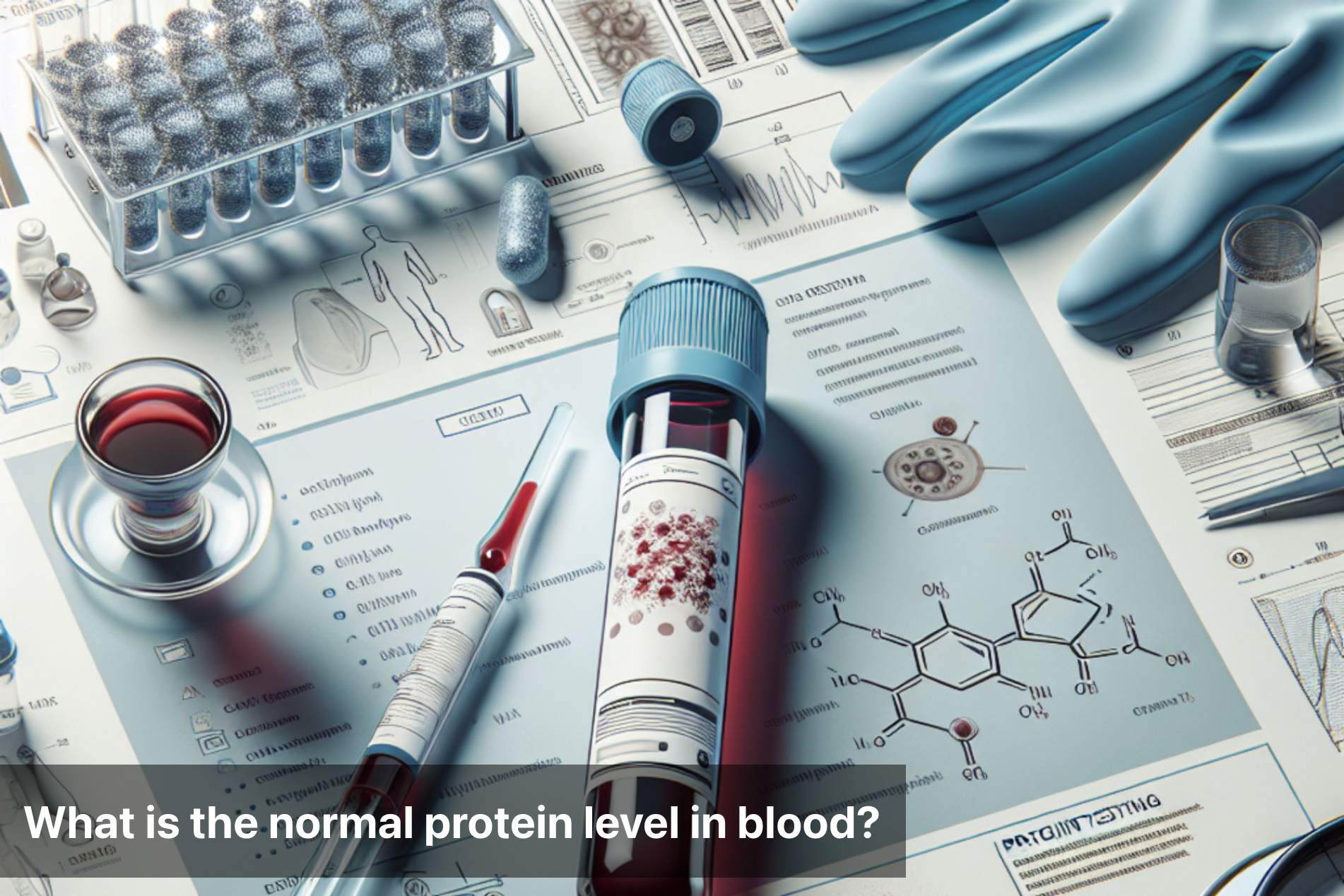
What is the normal protein level in blood?
Proteins in blood play a crucial role in maintaining our health and supporting bodily functions. These proteins are essential for various functions in the body. They act as messengers, carrying important signals from one part of the body to another. Additionally, proteins help in transporting nutrients and medications throughout the bloodstream.
Maintaining normal levels of protein in the blood is vital for overall health and well-being. Protein levels can indicate the body's ability to function optimally. Normal protein levels ensure proper growth and repair of tissues, support a healthy immune system, and aid in maintaining fluid balance within the body.
Proteins also contribute to the synthesis of enzymes and hormones necessary for metabolic processes. Any deviation from the normal range of protein levels in the blood can signal underlying health issues or deficiencies. Therefore, it is crucial to monitor and regulate protein levels to prevent complications and ensure the body's proper functioning.
Understanding the significance of protein levels in the blood is integral to maintaining a healthy lifestyle. By recognizing the importance of these proteins and their role in the body, individuals can take proactive measures to support their overall health and well-being.

Normal Protein Levels in Blood
Total Protein: The normal range for total protein in blood serum is typically between 6.0 to 8.3 grams per deciliter (g/dL).
Albumin: Normal albumin levels in blood range from 3.5 to 5.0 g/dL. Albumin is the most abundant protein in blood plasma and plays a crucial role in maintaining oncotic pressure and transporting various substances.
Globulin: The normal globulin levels vary but typically range between 2.0 to 3.5 g/dL. Globulins include various proteins such as antibodies, enzymes, and transport proteins.
Albumin-to-Globulin Ratio (A/G Ratio): The normal A/G ratio is approximately 1.2 to 2.0. This ratio provides insights into the balance between albumin and globulin levels and can help diagnose certain medical conditions.
Fibrinogen: Normal fibrinogen levels in blood plasma range from 150 to 400 milligrams per deciliter (mg/dL). Fibrinogen is essential for blood clotting and wound healing.
Protein Electrophoresis: Protein electrophoresis is a diagnostic test that separates proteins in the blood based on their electrical charge. It helps identify abnormalities in protein levels and composition, such as in conditions like multiple myeloma.
Interpretation: Interpretation of blood protein levels should be done in conjunction with other clinical parameters and medical history. Abnormalities in protein levels may indicate underlying health conditions such as liver or kidney disease, malnutrition, inflammation, or immune disorders.
Regular Monitoring: Monitoring blood protein levels is essential for assessing overall health and monitoring response to treatment in individuals with certain medical conditions or undergoing specific therapies.
Consultation: Interpretation of blood protein levels should always be done by a qualified healthcare professional, such as a physician or hematologist, to determine the underlying cause of any abnormalities and appropriate management.
Factors Affecting Protein Levels
Diet: Protein intake influences blood protein levels.
Liver and kidney function: These organs play roles in protein synthesis and metabolism.
Dehydration: Can lead to higher protein concentration in blood.
Inflammation: May elevate certain proteins like C-reactive protein.
Hormonal changes: Can impact protein levels, especially during pregnancy or illness.
Medications: Some drugs affect protein synthesis or metabolism.
Genetic factors: Certain conditions affect protein production or utilization.
Age and gender: Protein levels may vary with age and sex.
Testing and Monitoring Protein Levels
Blood tests: Measure total protein, albumin, globulin, and A/G ratio.
Protein electrophoresis: Separates proteins for detailed analysis.
Regular screenings: Essential for monitoring health and treatment effectiveness.
Interpretation: Done by healthcare professionals to assess overall health.
Adjustments: Treatment plans may be altered based on protein level changes.
When it comes to checking protein levels in the blood, healthcare providers rely on specific methods to ensure accurate results.
One common approach is through blood tests, where a sample is collected and analyzed in a laboratory setting. These tests help in quantifying the total protein present in the blood, allowing healthcare professionals to assess whether the levels fall within the normal range.
Moreover, laboratory analysis plays a crucial role in determining the types of proteins present in the blood. Different proteins have distinct functions in the body, and identifying them can provide insights into potential health issues. By analyzing the composition of proteins, healthcare providers can gain a deeper understanding of the individual's overall health status.
Regular monitoring of protein levels is particularly vital for individuals at risk of abnormalities. Those with underlying health conditions or specific dietary restrictions may be more prone to fluctuations in protein levels. Monitoring allows for timely intervention and management strategies to maintain optimal protein levels for overall health and well-being.

Breaking Down the Numbers: Understanding Typical Blood Protein Levels
Understanding the significance of maintaining normal protein levels in the blood is crucial for overall health and well-being. Proteins in the blood play a vital role in various bodily functions, making it imperative to keep them within the normal range.
Regular testing and monitoring of protein levels are essential to detect any abnormalities early on and take necessary actions. Factors like diet, hydration, medications, and certain health conditions can influence protein levels, highlighting the need for proactive management and care.
It is evident that proper protein levels are pivotal for optimal health, immunity, and overall well-being. By understanding the importance of maintaining these levels, individuals can take proactive steps to ensure their body functions optimally and stays healthy. Remember, when it comes to protein in blood, normal truly means healthy.
This Blog post is an initiative by Lo! Foods, to provide accurate and Nutritionist / Doctor approved information related to Health. Lo! Foods is India's leading brand for Everyday Functional Foods. Foods designed for specific Health conditions or Needs. Lo! Foods also runs India's largest range of Low Carb Healthy Cloud Kitchens, under the brand names of Lo!, ProteinChef, ATH (All Things Healthy) and DiabeSmart.















Leave a comment
Your email address will not be published.